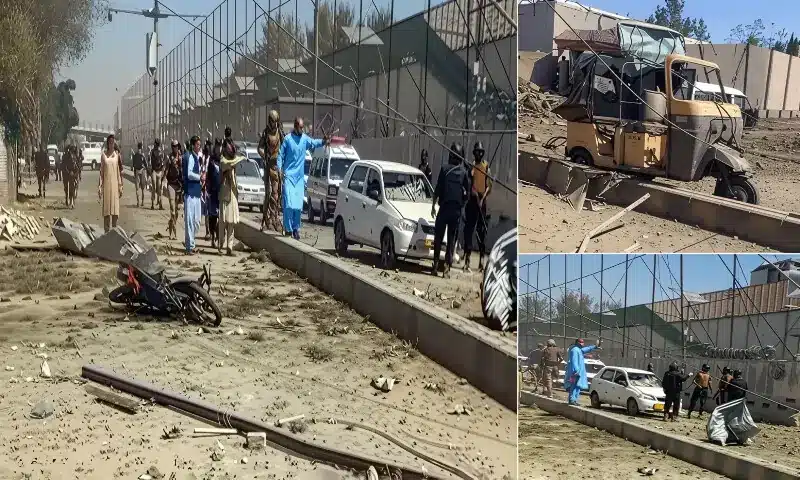QUETTA: The latest attack on the Frontier Corps (FC) headquarters in Quetta has once again underscored what Pakistan has long warned: Indian-backed militant proxies, Fitna al Khawarij, and Fitna al Hindustan are working in close coordination to destabilise Balochistan.
On Tuesday, FC personnel repelled a deadly assault on FC headquarters involving a suicide bomber and armed militants, killing the attackers before they could breach the compound. The operation marked another episode in a growing pattern of joint tactics between the Tehreek-e-Taliban Pakistan (TTP) and the Balochistan Liberation Army (BLA),
Pakistan’s position on the nexus was reinforced last July when a United Nations Security Council (UNSC) report confirmed that the TTP and the BLA, including its Majeed Brigade, maintain operational coordination. The report echoed Islamabad’s claim that India supports these groups as part of its proxy war against Pakistan.
Historically, TTP attacks security forces and public places in Khyber Pakhtunkhwa and the BLA in Balochistan from Afghanistan. But after nexuses, TTP started extending it attacks in Pakhtun-dominated areas in Balochistan.
Earlier in August, security forces had foiled an infiltration attempt of the Fitna al Khawarij terrorists from Afghanistan to Balochistan and killed 50 terrorists in Zhob near the Pak-Afghan border.
The groups—referred to as Fitna al-Khawarij (TTP) and Fitna al-Hindustan (BLA)—have repeatedly targeted security forces, Chinese-backed development projects, and civilian infrastructure in Balochistan.
Fitna al Khawarij and Fitna al Hindustan nexus
Adding to the alarm, a former CIA counterintelligence operative recently revealed that the BLA has now forged direct links with Al-Qaeda. She warned that the TTP has expanded dramatically under Taliban protection in Afghanistan, where it operates more than 40 training camps and now commands an estimated 15,000 fighters, including foreign militants from Yemen and Central Asia.
“The TTP is not what people think. It is bigger, international, and officially part of Al-Qaeda’s structure,” she said, noting that TTP’s deputy military chief, Muzaffar Muzahim, has joined Al-Qaeda’s senior shura.
The Quetta attack, coming on the heels of these revelations, is being viewed as further proof of an expanding militant nexus designed to destabilize Balochistan and derail regional stability.
Security officials warn that such alliances pose not just a threat to Pakistan but also to wider regional peace, as militant groups exchange resources, training, and ideology under the umbrella of transnational terrorism.
Pakistan has constantly been asking Afghanistan to not to let the militants use its soil. On the other hand, Afghanistan has been denying Pakistan’s claims. The UN reports, however, says the Afghan Taliban not only facilitates them but also allows their members to join TTP in attacks inside Pakistan.





